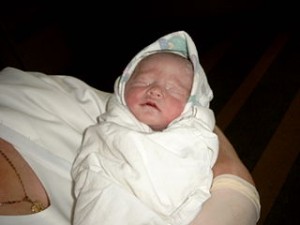Reproductive Technology Has Changed Estate Planning
There are a great many things to be considered during the process of crafting an estate plan, and advances in technology have changed many of the questions that everyone must ask. A prominent example of this comes with the rise in prominence of new reproductive technologies.
You and your partner may decide to have a child using methods of conception that didn't exist just a decade or two ago and they must be considered carefully. New medical technology, referred to as Artificial Reproductive Technology (ART) can include artificial insemination, implantation of donated eggs and/or embryos, or even a very new concept; post-death conception. While some of this may sound like something out of "Star Trek," the fact of the matter is, nearly 300,000 babies are born every year using ART methods, and the number is expected to grow quickly, especially now that a greater number of same-sex couples are able to become legally married, and might want to have a full family.
If the possibility of conceiving a child using an ART method is on your radar at all, you'll need to factor such a possibility into your estate plan. Failing to do so could result in unintended and possibly unwanted consequences. As always, the law is well behind the technological curve, so any estate plan will have to cover all angles. For example, with a greater number of non-traditional marriages and other relationships occurring these days, bringing the biological "parents" and the non-biological grandparents into the decision-making process could be a wise move, since any decision you make could impact them, as well. And if you do have a child this way and die without an estate plan, forget it. Nothing will happen the way you want it to.
There are other questions to consider, as well. For example, if the plan is to have a child later, will you donate or “bank” reproductive material, and what happens to that material if you die? Also, if you have donated reproductive material, who actually owns it? Have you given the proper consent for using your genetic material to conceive a child after you become disabled or die?
These questions can be very important, since a number of states consider a child conceived posthumously to be an heir for probate purposes. This could result in a sharp increase in the number of heirs, if your plans are not spelled out in complete detail in your estate plan. The way the law is written in some states, if you have two children when you die and you leave behind enough genetic material to create eight more, your estate could end up forced to consider ten children in your final plan.
Estate planners must take into account every possible problem when drawing up your estate plan, and the major changes in reproductive technology in recent years has changed the equation in many important ways. If you and your partner are considering having a child at some point, and any of these things apply to your situation, remember to discuss them with your estate planner.

